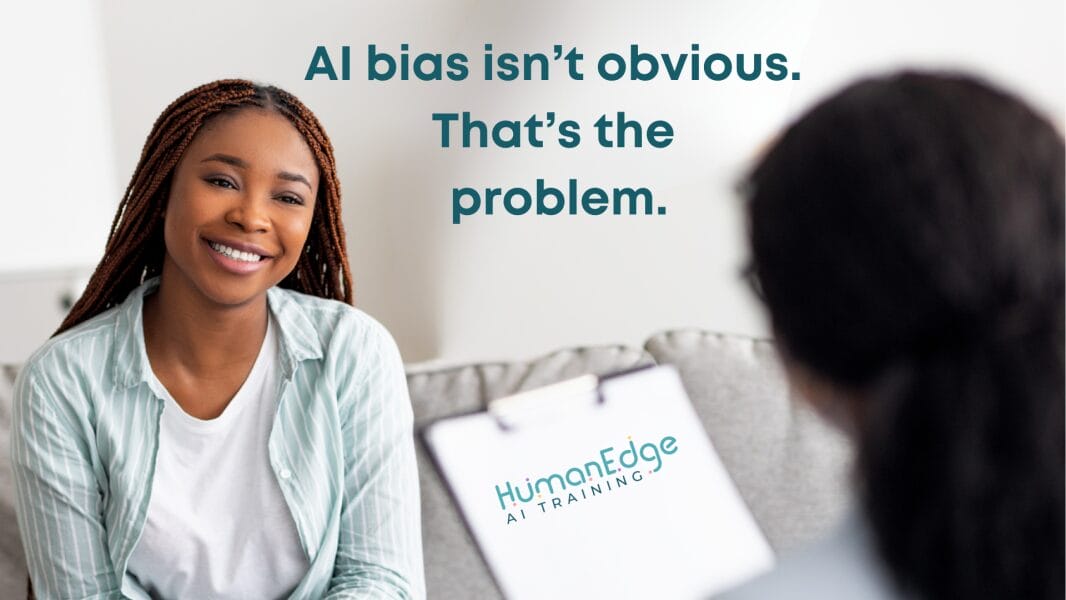Agentic AI is stepping into the spotlight in 2025, promising greater autonomy in both personal and professional tasks. At their core, these agents move beyond simple automation to something far more sophisticated.
They offer a glimpse into a world where machines don’t just follow instructions…they figure out the instructions themselves. (Yes, that’s a slightly scary thought!)
Early this morning, I attended a fantastic webinar on Introduction to AI Agents, delivered by Fortune 500 AI Advisor, Allie K. Miller.
Allie’s insights made it clear – we’ve come a long way from simple automation. However, she highlighted that while these agents are incredibly smart, humans still need to stay in the loop to provide guidance and final sign-off. Being pro-Human-first businesses, I’m incredibly glad she mentioned that!
So, what are AI Agents? Why should we pay attention? And how can they enhance, rather than replace, the human expertise we bring to the table?
From basic rules to big goals – The evolution of AI AGENTS
To truly understand the power of AI agents, it helps to see where they’ve come from. AI didn’t start with agents that can problem-solve on the fly. It’s been a steady evolution, building on the foundations of basic automation and smarter AI automation.
So, how did we get here?
Here’s the breakdown:
- Automation is the simplest form of task execution – it’s all about “If X happens, do Y.” Think of it as a digital rule follower that sticks to a strict playbook, no questions asked.
For example, email filters are a classic case. If an email arrives with the subject line “Invoice,” the system will automatically move it to the “Finance” folder without needing a second thought. Similarly, scheduled reminders do their job without fail – when the clock strikes 9:00am, your phone pings you with a notification: “Time for your team meeting!”
While incredibly useful for repetitive tasks, automation doesn’t adapt or improvise. It works best for predictable scenarios where creativity or decision-making isn’t required – just clear, simple instructions.
- AI Automation takes things up a notch. It’s still about “If X happens, do Y,” but it follows a more sophisticated set of steps – with at least one step calling on a Large Language Model (LLM) for added brainpower.
For example, if you are processing invoices, the system doesn’t just file them away like basic automation would. It will scan the document, extract key details like invoice numbers and amounts, and cross-check them against payment records. When it comes to responding to support tickets, AI Automation can analyse the issue, pull relevant information, draft a helpful response, and send it off, all with minimal human input.
It’s smarter, more capable, and perfect for tasks that require a bit of reasoning – but still follow a predictable flow.
- AI Agents are the real game-changers. Instead of following a fixed set of steps, they’re goal-driven – meaning you can ask “Given goal Y, please figure out the steps (X) to achieve it – and execute them.” The magic lies in their ability to adapt and problem-solve along the way.
For example, you might ask an AI agent to conduct research on a potential client. It could potentially start by scanning LinkedIn for relevant details. If it doesn’t find enough information, it won’t just stop. It will then pivot to Google, digging deeper to uncover what it needs. Every step is part of a flexible, goal-oriented process, with the agent dynamically deciding its next move.
Agenic AI tools are already flooding the market
In the webinar, Allie mentioned there are now around 600 Agentic AI tools available. OMG!
Rather than being completely overwhelmed by that number, she kindly pinpointed a few she recommends – including Mindy AI (for pre-meeting research) and Aomni (for sales analysis), which are showing what’s possible. I look forward to investigating these further and checking out the opportunities and limitations.
But the takeaway here isn’t the tech itself – it’s the shift in how we think about AI. These agents are redefining workflows, freeing up humans for higher-level decisions and creativity.
Human oversight is still critical
Since AI agents are still “hallucinating” (a fancy way of saying they get things wrong), we need to keep the expert humans onboard to ensure everything is managed correctly and effectively. I like that the process behind AI agents will remain transparent to ensure every step taken by the bots can be reviewed and signed off.
As we explore this new territory, setting clear boundaries and keeping that human touch front and centre will ensure AI agents enhance, rather than replace, our expertise.
Allie brought up some very important questions that we need to consider in 2025 and beyond:
- How much control should we give agents?
- When will they be ‘good enough’ for full autonomy?
- Will AI agents ever be treated as employees?
- Will we have more AI agents than employees?
- What rights/access should we give?
- How will we know the thought process is right?
- How do we stop agents from doing ‘bad things’?
All great questions – especially the last one which sends everyone into a tizzy about a possible pending war between humans and robots. What are the answers? Well, I’ll be watching this space closely to find out.
In summary
AI agents are reshaping workflows, solving problems, and freeing us up for bigger, more creative tasks. But as Allie K. Miller pointed out, success depends on us. Human oversight, clear boundaries, and thoughtful control will ensure these tools enhance – not replace – our expertise.
The big questions around trust, transparency, and responsibility remain, but one thing’s for sure – AI agents are here to stay. And they’ll continue to improve with time.
If you’re ready to upskill your team in the AI space in 2025, send me a DM. Getting on top of these changes ASAP is vital to ensure confidence and correct usage of AI in 2025 and beyond.
* This article is the result of a collaboration between my notes from Allie’s session on 18/12/24 6am-7am Sydney time, my experienced copywriting skills, my carefully crafted prompts, and my ever-reliable, well-trained ChatGPT buddy.




